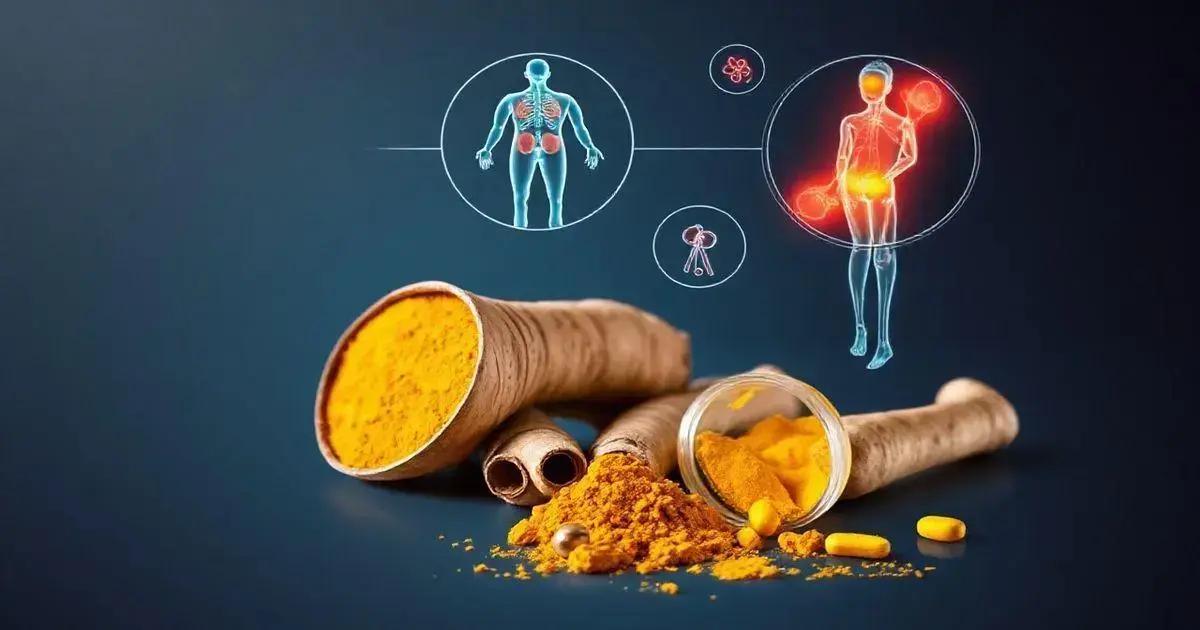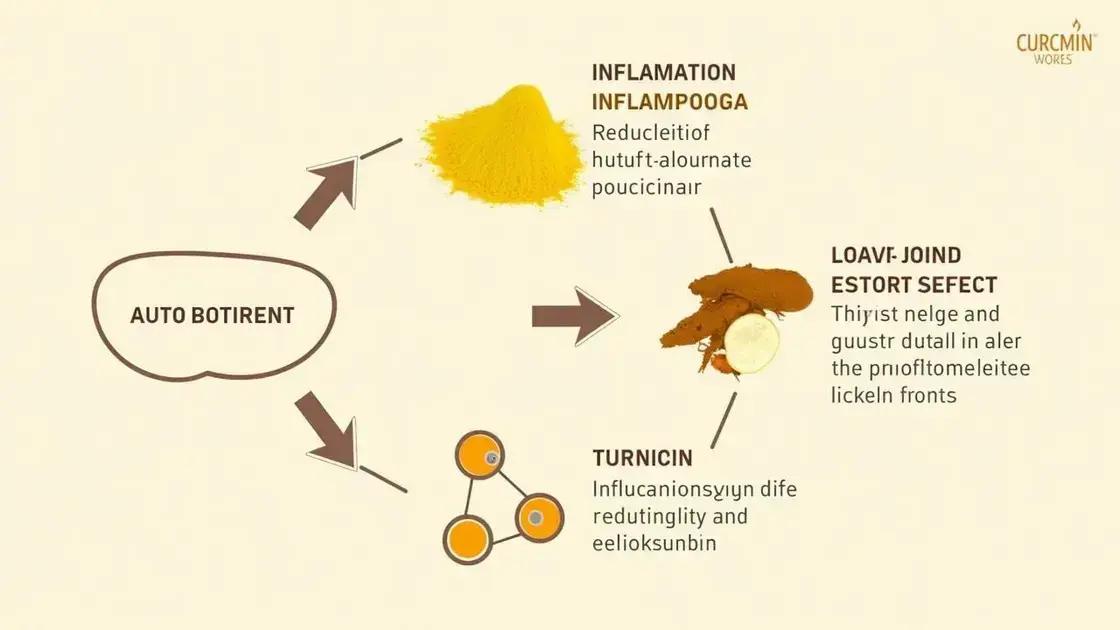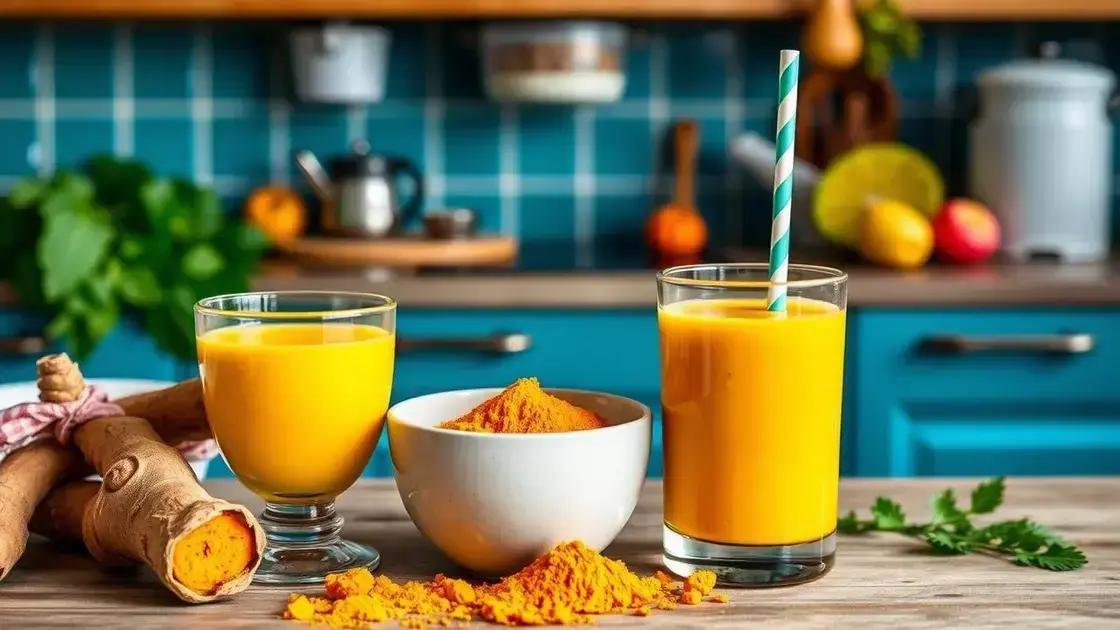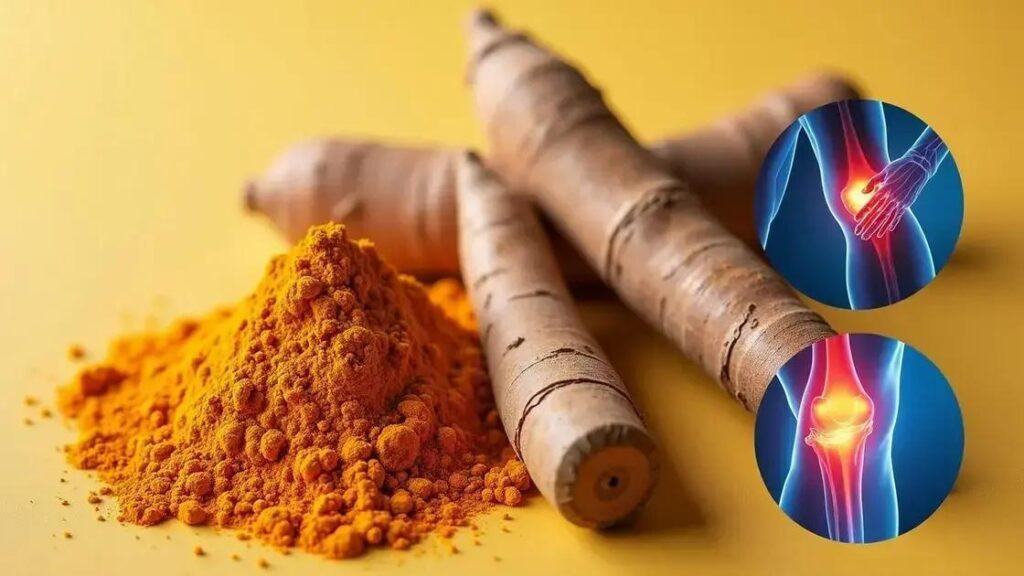Curcumin, a natural compound found in turmeric, plays a significant role in managing arthritis symptoms by reducing inflammation and pain. Numerous studies support its effectiveness, making it a valuable addition to the diet through cooking, golden milk, smoothies, or supplements. Combining curcumin with black pepper can enhance its absorption, and while it can complement traditional medications, it’s important to consult a healthcare professional before making any changes.
Curcumin, found in turmeric, plays a crucial role in managing arthritis symptoms. It is well-known for its anti-inflammatory properties, helping to relieve pain and improve joint function. In this article, we will delve into understanding how curcumin interacts with arthritis, the science behind its effectiveness, and strategies to incorporate this powerful compound into your diet.
Understanding Curcumin and Arthritis

Curcumin is a natural compound found in turmeric, a spice that adds flavor and color to various dishes. This yellow pigment is known for its anti-inflammatory and antioxidant properties. Understanding curcumin’s impact on arthritis can help those suffering from this condition find relief.
Arthritis is a term that refers to over 100 different inflammatory joint diseases, causing pain, swelling, and stiffness. Individuals with arthritis often seek alternative therapies, leading many to explore curcumin as a potential treatment. Studies suggest that curcumin may effectively reduce arthritis symptoms by lowering inflammation in the body.
The Science Behind Curcumin
This compound interacts with various molecules in the body that play a role in the inflammatory process. By inhibiting these pathways, curcumin can help alleviate discomfort associated with arthritis. Moreover, its antioxidant effects combat free radicals, which can worsen inflammation and cause further joint damage.
Many studies support the use of curcumin in managing different types of arthritis, including osteoarthritis and rheumatoid arthritis. It may provide an alternative or complementary option alongside traditional medications, offering hope to those looking for more natural remedies.
Curcumin is generally considered safe for consumption, but it’s essential to consult with a healthcare professional before starting any new supplement. They can provide guidance on proper dosages and potential interactions with other medications.
How Curcumin Works to Alleviate Symptoms

Curcumin works to alleviate symptoms of arthritis by targeting multiple pathways involved in the inflammatory response. First, curcumin inhibits the production of inflammatory cytokines, which are proteins that promote inflammation in the body. By reducing the activity of these cytokines, curcumin helps to lessen pain and swelling in the joints.
Another important aspect of curcumin’s action is its ability to block enzymes that contribute to inflammation, such as COX-2 and LOX. These enzymes are often elevated in people with arthritis. By inhibiting their activity, curcumin reduces inflammation and helps maintain flexibility in the joints.
Antioxidant Properties
Curcumin also offers antioxidant benefits, neutralizing free radicals which can cause oxidative stress in the body. This oxidative stress is linked to joint damage and worsened symptoms of arthritis. By fighting against free radicals, curcumin can further protect joint health and complement its anti-inflammatory effects.
Research indicates that curcumin can enhance the body’s natural anti-inflammatory responses. It may increase the levels of natural compounds that help fight inflammation, promoting healing and better joint function.
Absorption and Effectiveness
While curcumin offers many benefits, its effectiveness can be limited due to poor absorption in the body. To improve absorption, it is often recommended to combine curcumin with black pepper, which contains piperine—a natural substance that enhances curcumin’s bioavailability significantly.
Additionally, various forms of curcumin supplements are available, such as liposomal curcumin and curcumin with enhanced absorption technologies, ensuring that more of this powerful compound reaches the bloodstream and exerts its effects.
Research Studies on Curcumin and Arthritis

Research studies on curcumin and arthritis have gained attention in recent years due to curcumin’s anti-inflammatory properties. Numerous clinical trials have been conducted to examine how this compound can help manage arthritis symptoms effectively.
One notable study published in the Journal of Medicinal Food found that curcumin could reduce the pain and stiffness associated with osteoarthritis. Participants who took curcumin supplements experienced greater improvements in joint function compared to those given a placebo.
Another study in the American Journal of Rheumatology focused on rheumatoid arthritis. It highlighted curcumin’s role in decreasing inflammatory markers in the blood. The results showed a significant reduction in symptoms such as swelling and tenderness in the joints among patients who used curcumin regularly.
Comparative Effectiveness
Research has also compared curcumin’s effectiveness to traditional arthritis medications, such as non-steroidal anti-inflammatory drugs (NSAIDs). In some studies, curcumin demonstrated comparable effects to these drugs, but with fewer side effects. This finding is particularly important for long-term management, as it suggests that curcumin may be a safer alternative for many patients.
Moreover, meta-analyses reviewing multiple studies have confirmed that curcumin supplementation leads to a meaningful reduction in arthritis symptoms and improved quality of life. These cumulative findings emphasize curcumin’s significant potential in alleviating arthritis.
Future Directions in Research
As research into curcumin expands, scientists are looking at newer formulations to enhance its absorption and effectiveness. Innovative delivery methods, such as liposomal formulations, are under investigation to see how they may optimize curcumin’s benefits in patients with arthritis.
Overall, these studies provide a hopeful outlook on the role of curcumin as a complementary treatment for arthritis, further encouraging ongoing research in this area.
Practical Ways to Incorporate Curcumin into Your Diet

Incorporating curcumin into your diet can be simple and enjoyable. Here are some practical ways to add this powerful compound to your meals without much effort.
1. Add Turmeric to Your Cooking
One of the easiest ways to introduce curcumin is by using turmeric spice in your cooking. You can add it to soups, stews, and curries for flavor and color. A tablespoon of turmeric can transform a dish while providing health benefits.
2. Make Golden Milk
Golden milk is a delicious beverage made by combining turmeric with milk (dairy or plant-based) and spices like black pepper and cinnamon. This warm drink not only tastes great but also packs a nutritional punch. Try drinking it before bed for a soothing bedtime routine.
3. Use in Smoothies
Adding turmeric to smoothies is an excellent way to enjoy its benefits. Simply blend a teaspoon of turmeric with fruits such as bananas or mangoes, along with yogurt or almond milk. This adds a vibrant color and boosts the nutritional value of your smoothie.
4. Try Curcumin Supplements
If cooking with turmeric is not your preference, consider taking curcumin supplements. They are available in various forms, such as capsules or powders. Make sure to choose a product that provides high bioavailability for better absorption.
5. Create Salad Dressing
Mixing turmeric into your salad dressing can add both flavor and health benefits. Combine olive oil, vinegar, turmeric, and your favorite seasonings for a simple and healthy dressing.
By incorporating these simple tips, you can enjoy the benefits of curcumin while enhancing your meals with new flavors.
Incorporating Curcumin for a Healthier Future
Curcumin has shown significant potential in managing arthritis symptoms effectively through its anti-inflammatory and antioxidant properties. As discussed, numerous studies highlight its effectiveness in alleviating pain and improving joint function, offering hope to those suffering from arthritis.
By understanding how curcumin works, exploring the research behind it, and discovering practical ways to include it in your diet, you can take proactive steps toward better joint health. Whether through cooking, beverages, or supplements, integrating curcumin into your daily routine can enhance your overall well-being.
As a natural remedy, curcumin not only provides relief but may also support long-term joint health and improve the quality of life. Don’t hesitate to explore the benefits of this powerful compound as part of your journey to managing arthritis symptoms.
FAQ – Frequently Asked Questions about Curcumin and Arthritis
What is curcumin, and where is it found?
Curcumin is a natural compound found in turmeric, a spice commonly used in cooking. It is known for its anti-inflammatory properties.
How does curcumin help manage arthritis symptoms?
Curcumin helps reduce inflammation and pain associated with arthritis by inhibiting inflammatory markers in the body.
Are there any studies supporting curcumin’s effectiveness for arthritis?
Yes, numerous studies have shown that curcumin can significantly reduce arthritis symptoms and improve joint function.
How can I incorporate curcumin into my diet?
You can add turmeric to your cooking, make golden milk, include it in smoothies, or take curcumin supplements.
Is curcumin safe to take?
Curcumin is generally considered safe for most people, but it’s essential to consult with a healthcare professional, especially if you are on medication.
Can curcumin replace traditional arthritis medications?
Curcumin may be used as a complementary therapy to traditional medications, but it should not be used as a replacement without consulting a doctor.













